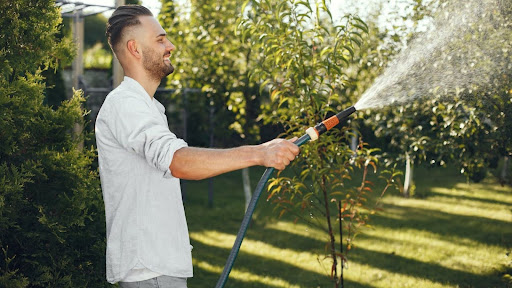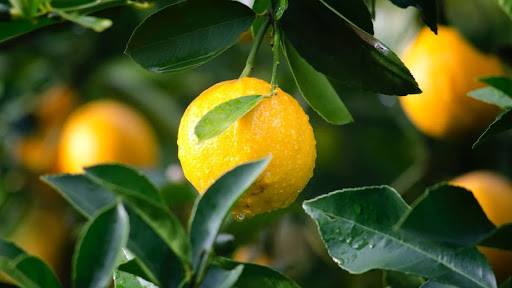Fruits are even tastier when you have grown them yourself. But they can quickly rot and remain unripe if they don’t receive proper care. One of the essential keys to a thriving fruit tree is proper watering.
So how often should you water your fruit trees? It’s a common question that might seem simple but has many layers. Different fruit trees have different requirements that vary due to various factors.
This article explores the factors determining how often your fruit trees need water so they grow strong and yield the delicious harvest you dream of.
Factors Determining the Water Needs for Fruit Trees
Knowing Your Fruit Trees
Different fruit trees have different needs. Citrus trees need more frequent watering, while fig trees require less water. Understanding your specific tree’s requirements will help keep it blooming and healthy.
Soil Type Matters
The kind of soil you have plays a huge role in watering. Sandy soil drains fast, so you’ll need to water more often. Clay soil holds water longer, so if you have something like a pomegranate tree, which doesn’t need much watering once it has established deep roots, you’ll need to be careful not to overwater.
The Age of the Tree
Young fruit trees need more attention and consistent watering to help them grow. Mature trees, on the other hand, have deeper roots and can find water further down in the soil, so they don’t need to be watered as often.
Seasonal Changes
During the hot and dry summer, your trees need more water. In the winter, especially for dormant trees like grapes, you can cut back on watering. Being mindful of the seasons will help you provide just the right amount of water.
Using the Right Techniques
Not all water is absorbed by the roots. Methods like drip irrigation can be more efficient and deliver water right where the tree needs it. Also, ensure the water reaches the roots without making the area too soggy.

Observing and Adjusting
Lastly, keep an eye on your trees. Seasonal changes and the soil can make it complicated to know how much to water the fruit tree. Signs like drooping leaves and shriveling fruit mean it needs more water. Learning the signs will help you adjust your watering schedule to suit the unique needs of each tree.
Watering Needs for Various Fruit Trees
There’s no one-size-fits-all answer to how much you should water fruit trees. Every fruit tree has different needs. But here are some common fruit trees and their water needs according to different stages of growth.
Apple Trees
Apple trees thrive when watered regularly, especially during the growing season. Keeping the soil moist but not soggy is the key here. In dry periods, wateronce a week, while in more humid conditions, once every two weeks will suffice.
Citrus Trees
Citrus trees, like oranges and lemons, require consistent moisture, especially when the fruits are forming. The soil should be damp to the touch but never waterlogged. Drip irrigation can be a handy tool to ensure your citrus trees get the perfect amount of water.
Peach Trees
Peach trees are one of the more demanding ones. Keeping the soil moist, especially during flowering and fruiting, ensures your peaches grow juicy and sweet. Depending on the weather, you might need to water once or twice weekly.
Cherry Trees
Cherry trees prefer deep and infrequent watering. This helps the roots grow deep and strong. Watering once every ten days to two weeks, and allowing the soil to dry between watering, will usually suffice. However, younger trees require more frequent watering.
Key Takeaways
Growing fruit trees is one of the most rewarding experiences, offering you fresh and tasty treats right from your garden. But to achieve this delightful harvest, understanding the watering needs of your fruit trees is crucial.
Remember, sandy soil will require more frequent watering, while clay soil holds moisture longer. Young trees require more water for initial growth, while mature ones have deep roots that can draw water from the ground. The seasons also dictate the watering schedule, and techniques like drip irrigation can make the process more efficient.
There’s no universal answer, as every tree is unique. With the right care and understanding, your fruit trees will flourish, providing you with a bountiful and delicious harvest year after year.





